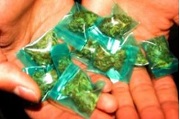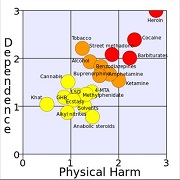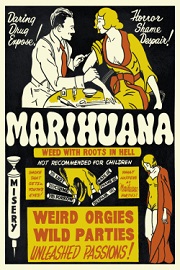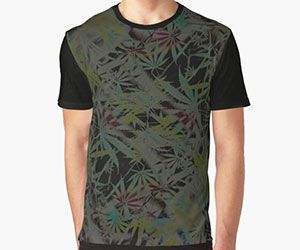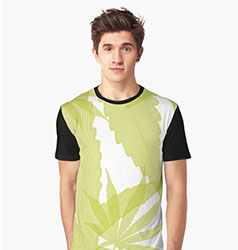Hoorah, Death to the Gateway Theory
With all of the progress made in pot politics over the last two decades, electing a President with a Stone Age view of cannabis would be a disaster on many fronts — especially in light of a study conducted by the University of Victoria (Canada) and published in Drug......
Tech's Lax Analysis Raises Questions on His 7,800 Drug Cases
The New Jersey attorney general's office has notified prosecutors that a lab technician failed to properly analyze evidence in a drug case, calling into question more than 7,800 criminal cases he's worked on over the last decade....
The Hippocratic Oath Or The Hypocrite Oath
Once described as the devil's weed, cannabis is now being portrayed as our savior, at least for some.
And this evidence is not just anecdotal, there are thousands of scientific studies published on http://www.ncbi.nlm.nih.gov/pubmed with some amazing findings.
Anecdotally speaking; parents have given their children suffering from epilepsy, just a few drops of a cannabis tincture or cannabis oil (CBD) and the results have been beyond belief.
Children previously suffering multiple and sometimes hundreds of epileptic seizures every week, after being prescribed a cocktail of prescriptions drugs, are now almost seizure free on cannabis derived medication.
For the family and child, this must seem like a true miracle!
But the miracle doesn't stop here! (here's where I offer the free steak knives)
Medical cannabis has many potential beneficial effects. Evidence is moderate that it helps in chronic pain and muscle spasms. Lesser evidence supports its use for reducing nausea during chemotherapy, improving appetite in HIV/AIDS, improving sleep, and improving tics in Tourettes syndrome.
https://en.wikipedia.org/wiki/Medical_cannabisAnecdotally the list of benefits is unbelievable, as seen here (the list is too long to mention)
We also know that THC and CBD kill cancer cells, but there's way more to it than that, this is preclinical evidence.
But the really amazing thing about cannabis is it's non-toxicity, it's not poisonous as so many other pharmaceutical drugs are.
Joe Rogan, the world famous pod caster and comedian, made the joke " the only way you can die from cannabis, is if the CIA are flying overhead and they accidentally drop 25kg out of the plane and it accidentally hits you on the head" And he's not wrong.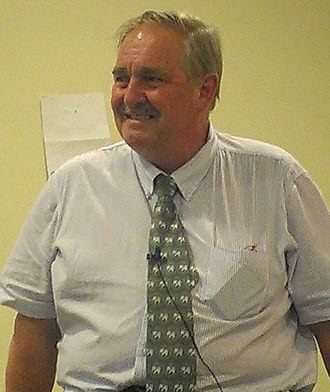 Professor David Nutt was employed by the British government to research cannabis and drug safety in general.
Professor David Nutt was employed by the British government to research cannabis and drug safety in general.
He is a Fellow of the Royal College of Physicians, Royal College of Psychiatrists and the Academy of Medical Sciences. He holds visiting professorships in Australia, New Zealand and the Netherlands. He is a past president of the British Association of Psychopharmacology and of the European College of Neuropsychopharmacology.[9] He was the recipient of the 2013 John Maddox Prize[54] for promoting sound science and evidence on a matter of public interest, whilst facing difficulty or hostility in doing so. He is past president of the British Neuroscience Association and current president of the European Brain Council.[55]
https://en.wikipedia.org/wiki/David_Nutt
So his credentials are pretty impressive!
So were his findings after many years of research. Nutt published a controversial study on the harms of drug use in The Lancet.
The result revealed alcohol and tobacco to be more harmful than LSD, ecstasy and cannabis.
Now for the me the problem with LSD, ecstasy or any drug that comes in pill, liquid or powder form, is that you never really know what's in it. But cannabis is a different matter.
Cannabis can and should be grown outdoors under the sun and organically and if you know the strain of seed to grow, the outcome is predictable.
Also, considering David Nutt's findings and his qualifications, why shouldn't the Australian public and the rest of the world for that matter, be allowed to grow for medicinal purposes and to self medicate?
We brew our own beer, grow our own wine, we are grown-ups!
It's time for a referendum, Let the people have their say. The TGA and AMA and government for that matter, should not be involved in medical cannabis legislation, considering their ties with big pharma and the large yearly profits made.
We need an independent non-governmental research team, the best scientists available to study what cannabis can and can't do, and in the mean time, people with health issues should be allowed to grow and self medicate legally.
So this leads me to today's article in the Telegraph.
It’s all talk and no action on medicinal cannabis
The Government’s embracing of cannabis as the great green hope for our farmers is a classic case of framing themselves as helping make something evil turn into good.
As always, all is not as it seems.
So far, it means nothing for most and only offers a thread of hope for a chosen few.
These steps are more like marching on the spot than moving forward. At a distance, it looks effective, but in reality it is all just for show.
And what a show governments have put on: there was a sparkly announcement last year that the Queensland Government would be involved in a single trial of testing the efficacy of medicinal cannabis on children with severe epilepsy. Then the Federal Government said it would take steps to decriminalise the growing of the wonder plant for medical purposes.
Now the state says our laws, if and when they are eventually drafted, debated, voted on and enacted, will be the most progressive in the country and will open new industries and help the sick and dying.
But so far — nothing.
It smacks of 2003, when then NSW premier Bob Carr and then PM John Howard announced four years of medicinal cannabis clinical trials. They never happened.
Importantly, nothing has changed for the many already using medicinal cannabis oil and spray. No lifeline has been extended, no amnesty offered to create secure and legal lines of supply during the many years it will take for the tiniest changes to be made.
Pertinently, the talk around medicinal cannabis has all been around working with pharmaceutical companies.
This is a product that already has experts making it. It is already helping those willing to step outside the law.
And it is most effective when as close to its natural state as possible — no pill press, boxing conveyor belt or assembly line required.
All the Government needs to do is to legitimise and embrace the covert industry and its knowledge, not focus solely on legislation and economy ahead of health.
Last month, in response to a parliamentary e-petition to change the law to free up access to medicinal cannabis for those who need it now, Health Minister Cameron Dick reiterated that cannabis in all forms is illegal.
The Government is therefore being churlish and misleading in saying that they want to make medicinal cannabis available to more sick people. They could do that now, but they haven’t.
And they are wrong in indicating that the move on Tuesday will legally put medicinal cannabis under the tongues of Queenslanders who are sick or dying: the only thing it changes is that it lays out a possible legal route in which the state’s chief medical officer can give permission to individuals to be part of specific clinical trials.
That will not change the status quo — and too bad for the dying, who do not have time to wait for the world to change.
Dick said individuals who wanted to access medicinal cannabis now could apply to the Federal Government’s Therapeutic Goods Administration under its Special Access Scheme.
Just how many people have done that and how many were approved is unknown, but I would wager the answer is none.
The healing properties within the cannabis plant have been embraced for thousands of years. It has forever been food, clothing and medicine. The Declaration of Independence was drafted on hemp paper and early American flags were made from hemp cloth.
Its status was changed by magicians who turned the life-giving wonder plant into a demonic danger right before the public’s eyes 100 years ago.
We were all robbed of nature’s nutritious, healing gift, in all its forms.
I bought some hulled hemp seed at a natural food store the other day. Hemp seed is a complete vegetable protein, perfect for an active person like me.
Stuck on the front of the packaging is a warning that hemp seed has not been approved for human consumption in Australia and New Zealand.
We are islands in this — the rest of the world uses it as a key food for exercisers.
More action and less talk is required. We must shift out thinking, offer an amnesty to those already making medicinal cannabis and those who will use it before any legislative wheels might start turning. Medicinal cannabis can do no harm.
And we must have legal steps that make medicinal cannabis available to more than just a handful on a specific clinical trial.
Otherwise, the Government must stop hinting that medicinal cannabis will be Queensland farmers’ saving grace and broad hope for the sick and dying and, instead, be honest about it being pharmaceutical companies’ future new cash cow.
Jane Fynes-Clinton is a Queensland-based journalist.
This email address is being protected from spambots. You need JavaScript enabled to view it.
reference:http://www.dailytelegraph.com.au/rendezview/its-all-talk-and-no-action-on-medicinal-cannabis/news-story/eb5ceb5136f17ecfc4ee580c71655c5d
In the words of John Lennon "Just give me the truth, all I want is the truth"
John Lennon famously made the statement many years ago "all we need is love", such a broad, beautiful, idealistic and poetic statement, I love John Lennon's music!
Well, we could all do with a bit more love, however you define it.
But what I think we really need is to listen to is what our scientific academics are telling us. Listen to the people that know, who have spent years of their lives researching a single subject, such as cannabis.
We need to stop listening to the politicians who don't know the difference between one end of a joint to the other. Politicians who think cannabis, marijuana and medical marijuana are three different things. Politicians who have corrupted the minds of the masses with propaganda for the past 50 years, who constantly placate the public, but don't listen to the people, unless forced to.
With slogans like "Weed with roots in hell" and images of a couple injecting the evil drug marijuana into their veins as seen in the propaganda poster below. Are these guys for real, who believes this crap? "horror, shame despair" really! This what the public think of the government, not cannabis.
This is the challenge cannabis is up against, 50 years of lies, such as "it's the gateway drug", "it causes mental heath problems", "it makes everyone a moron", it's evil! etc, etc.
It's amazing what the ignorant will believe or should I say believed, past tense.
The residue from this fearsome propaganda campaign still exists today, but it's changing, very slowly changing.
John Lennon also said in one of his songs "Just give me the truth, all I want is the truth" Amen John, and the truth will set us free!
But where do we get this "truth", where do we get the real facts, the evidence we need? Our scientists, they are the foundation of our education system and we should (if we're smart) listen.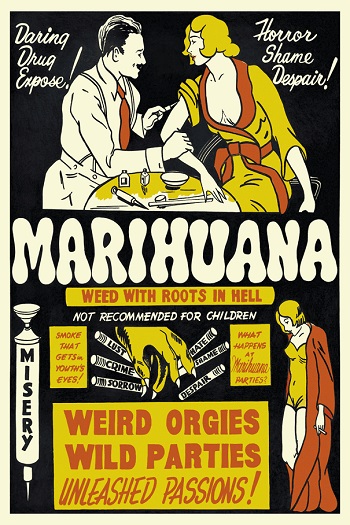
Let's Get Smart, We need to listen to scientists like professor David Nutt:
David John Nutt (born 16 April 1951) DM FRCP FRCPsych FMedSci is a British psychiatrist and neuropsychopharmacologist specialising in the research of drugs that affect the brain and conditions such as addiction, anxiety and sleep.[3] He was until 2009 a professor at the University of Bristol heading their Psychopharmacology Unit.[4] Since then he has been the Edmond J Safra chair in Neuropsychopharmacology at Imperial College, London.[5] Nutt was a member of the Committee on Safety of Medicines, and was President of the European College of Neuropsychopharmacology.[6][7][8] His book "Drugs without the hot air" (UIT press) won the Transmission Prize for Communicating Science in 2014.
He worked as a clinical scientist at the Radcliffe Infirmary from 1978 to 1982 where he carried out important basic research into the function of the benzodiazepine receptor/GABA ionophore complex, the long-term effects of BZ agonist treatment and kindling with BZ partial inverse agonists. This work culminated in a ground-breaking paper in Nature (journal) in 1982[10] which described the concept of inverse agonism (using his preferred term, 'contragonism') for the first time. From 1983 to 1985, he lectured in psychiatry at the University of Oxford. In 1986, he was the Fogarty visiting scientist at the National Institute on Alcohol Abuse and Alcoholism in Bethesda, MD, just outside Washington, D.C. Returning to the UK in 1988, he joined the University of Bristol as director of the Psychopharmacology Unit. In 2009, he then established the Department of Neuropsychopharmacology and Molecular Imaging at Imperial College, London, taking a new chair endowed by the Edmond J Safra Philanthropic Foundation.[9] He is an editor of the Journal of Psychopharmacology.[11]
Professor Nutt worked as an advisor to the Ministry of Defence, Department of Health and the Home Office.[9]
He served on the Committee on Safety of Medicines where he participated in an enquiry into the use of SSRI anti-depressants in 2003. His participation was criticised as, owing to his financial interest in GlaxoSmithKline, he had to withdraw from discussions of the drug Seroxat.[31] In January 2008 he was appointed as the chairman of the Advisory Council on the Misuse of Drugs (ACMD), having previously been Chair of the Technical Committee of the ACMD for seven years.[3]
Comparison of the perceived harm for various psychoactive drugs from a poll among medical psychiatrists specialized in addiction treatment. The associated paper was written by Nutt and included in his controversial lecture[12][32]
As ACMD chairman Nutt repeatedly clashed with government ministers over issues of drug harm and classification. In January 2009 he published in the Journal of Psychopharmacology an editorial ('Equasy – An overlooked addiction with implications for the current debate on drug harms') in which the risks associated with horse riding (1 serious adverse event every ~350 exposures) were compared to those of taking ecstasy (1 serious adverse event every ~10,000 exposures).[1] In February 2009 he was criticised by Home Secretary Jacqui Smith for stating in the paper that the drug ecstasy was statistically no more dangerous than an addiction to horse-riding.[33] Speaking to the Daily Telegraph, Nutt said that the point was "to get people to understand that drug harm can be equal to harms in other parts of life". Jacqui Smith claimed to be "surprised and profoundly disappointed" by the remarks, and added: "I'm sure most people would simply not accept the link that he makes up in his article between horse riding and illegal drug taking". She also insisted that he apologise for his comments, and asked him to apologise also to 'the families of the victims of ecstasy'.[34]
The issue of the mismatch between lawmakers' classification of recreational drugs, in particular that of cannabis, and scientific measures of their harmfulness surfaced again in October 2009, after the publication of a pamphlet[35] containing a lecture Nutt had given to the Centre for Crime and Justice Studies at King's College London in July 2009. In this, Nutt repeated his familiar view that illicit drugs should be classified according to the actual evidence of the harm they cause, and presented an analysis in which nine 'parameters of harm' (grouped as 'physical harm', 'dependence', 'and 'social harms') revealed alcohol and tobacco to be more harmful than LSD, ecstasy and cannabis. In this ranking, alcohol came fifth behind heroin, cocaine, barbiturates and methadone, and tobacco ranked ninth, ahead of cannabis, LSD and ecstasy, he said. In this classification, alcohol and tobacco appeared as Class B drugs, and cannabis was placed at the top of Class C. Nutt also argued that taking cannabis created only a "relatively small risk" of psychotic illness,[36] and that "the obscenity of hunting down low-level cannabis users to protect them is beyond absurd".[37] Nutt objected to the recent re-upgrading (after 5 years) of cannabis from a Class C drug back to a Class B drug (and thus again on a par with amphetamines), considering it politically motivated rather than scientifically justified.[32] In October 2009 Nutt had a public disagreement with psychiatrist Robin Murray in the pages of The Guardian about the dangers of cannabis in triggering psychosis.[17]
His Dismissal
Following the release of this pamphlet, Nutt was dismissed from his ACMD position by the Home Secretary, Alan Johnson. Explaining his dismissal of Nutt, Alan Johnson wrote in a letter to The Guardian, that "He was asked to go because he cannot be both a government adviser and a campaigner against government policy.
https://en.wikipedia.org/wiki/David_Nutt
Jay Cook: Public needs more education on medical marijuana
Over the last several months I've read, with great interest, the medical cannabis views of State Journal-Register readers. As someone who has spent their life caring for people through traditional medical channels, and now working in the medical cannabis field, I want to help educate people on the facts we currently know about this alternative medicine.
The fact is, that marijuana has incredible upsides, but a terrible reputation.
I meet with patients and physicians each and every week, and the first thing I tell them is that the use of medical cannabis benefits has been researched and proved beneficial in over 19,000 studies. Every living vertebrate has a natural endocannabinoid system that produces natural cannabinoids. Cannabinoids are a class of diverse chemical compounds that act on cannabinoid receptors in each of us.
I want to be crystal clear that I have enormous respect for doctors and nurses. I've worked with some of the most amazing medical minds that help their patients each and every day. The fact is, however, that a majority of physicians have not been educated on the endocannabinoid system, especially those that attended medical school before 1992, thus making the research and development of medical cannabis relatively new and cutting edge.
The fact is medical cannabis is being viewed less and less as a gateway drug, and more and more as an exit strategy to help people addicted to narcotics.
Why should I have to take one medication that helps with one ailment but creates three others? That's the downside to many of today's most commonly used prescription drugs. Today one in five adults, or 50 million Americans, take mind-altering drugs that are prescribed by doctors. The Centers for Disease Control and Prevention recently revealed, "approximately 27,000 unintentional drug overdose deaths occurred in the United States." That's one death every 19 minutes. In fact, the CDC reports "prescription drug abuse is the fastest growing drug problem in the United States." There is not one reported overdose with the use of medical cannabis.
The fact is that times are changing.
Cannabis is one of the fastest growing forms of medicine in the world, because its benefits cannot be ignored. Medical cannabis is not a fad, and it's not a fraud. It's proven to control nausea and insomnia and increase appetite for cancer patients. It's proven to reduce tremors in Parkinson's patients and dramatically reduce seizures for people with epilepsy.
The fact is patients need their doctor's permission but not a prescription.
Under Illinois' Compassionate Care laws, a physician does not prescribe cannabis to a patient. Physicians are simply stating for the record that a patient has one of the 39 qualified conditions allowable under the Medical Cannabis Program.
Cannabis is a curative, palliative, and natural substance already produced in our bodies. Most of us are lucky to have normal cannabinoid levels but many of us do not. Patients that do not have normal cannabinoid levels should be allowed to use cannabis to ease their suffering.
reference: http://www.sj-r.com/article/20160228/OPINION/160229621
Latest
Coronavirus Strikes Massachusetts Cannabis Company Employees
Reassessing the Essential: Cannabis in the Time of a Pandemic
5 Reasons To Try Aspen Valley CBG Flower (30% Off)
High Times Cannabis Cups Go Virtual In Wake Of Coronavirus Pandemic
Drug Enforcement Administration Proposes Plan To Expand Cannabis Research
Ghana Legalizes Cannabis For Medicinal And Industrial Uses
The cheapest legal weed in Canada: Discover these cannabis ‘value brands’
Cannabis and coronavirus: Here’s what you need to know
cannabis designs
The Best Of
WHO Rules CBD Should Not Be a Scheduled Drug

Dr Cristina Sanchez PhD video interview on medical marijuana and cancer

Biochemist Dennis Hill interview; Cannabis oil as a cure for cancer.
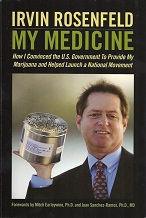
The unofficial World Record holder for cannabis smoking part 1



